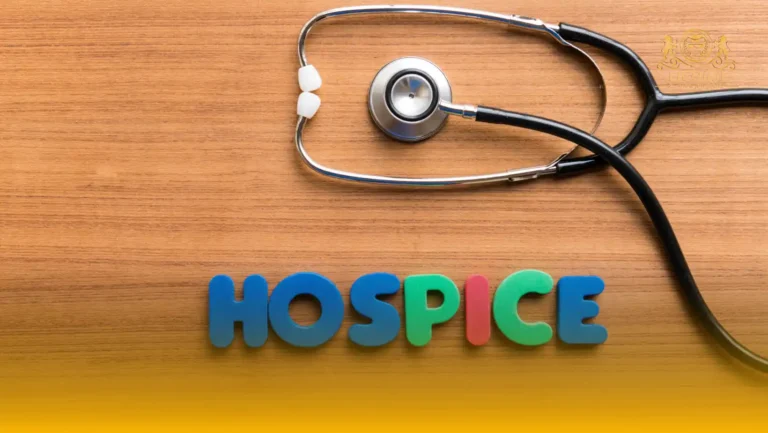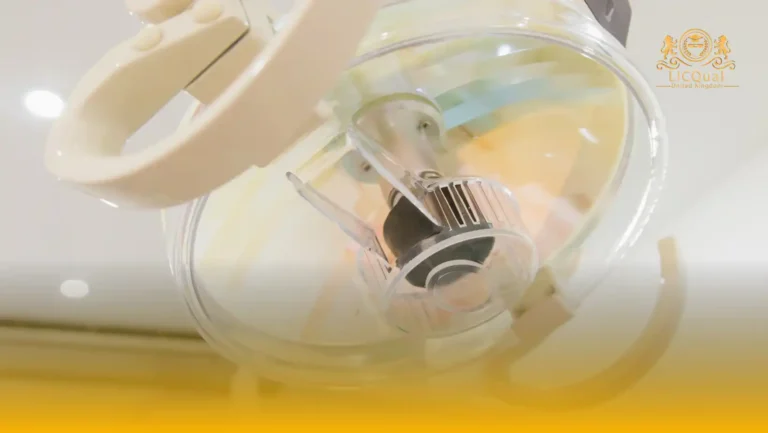The LICQual Level 3 Diploma in Critical Care Medicine (Dip CCM) is a specialised qualification designed for healthcare professionals seeking to advance their expertise in the management and care of critically ill patients. This diploma is ideal for practitioners who wish to enhance their career prospects, deepen their knowledge in critical care, and fulfil Continuing Professional Development (CPD) requirements.
This qualification is tailored for learners with prior healthcare experience and is not intended for fresh candidates. It equips learners with advanced clinical skills, evidence-based practice knowledge, and the ability to make informed decisions in high-pressure critical care environments. The course covers essential areas including patient assessment, advanced life support, critical interventions, and multidisciplinary team management, ensuring learners are well-prepared for real-world clinical challenges.
To maintain the highest standards of learning, centres delivering the LICQual Level 3 Diploma in Critical Care Medicine must have competent and qualified staff with extensive experience in critical care. Additionally, centres must provide all necessary training materials, clinical equipment, and resources to support learner engagement, skill development, and successful course completion.
By completing this diploma, learners will gain a recognised credential that demonstrates professional competence and a commitment to excellence in critical care medicine. It is an ideal pathway for those seeking to progress in their careers, take on leadership roles, or specialise further in critical care practice, while also contributing to safer patient outcomes and improved healthcare delivery.
Course Overview
Qualification Title
LICQual Level 3 Diploma in Critical Care Medicine (Dip CCM)
Total Units
6
Total Credits
60
GLH
240
Qualification #
LICQ2200887
Qualification Specification
To enroll in the LICQual Level 3 Diploma in Critical Care Medicine (Dip CCM) , applicants must meet the following criteria:
|
Qualification# |
Unit Title |
Credits |
GLH |
|---|---|---|---|
|
LICQ2200887-1 |
Introduction to Critical Care Medicine |
10 |
40 |
|
LICQ2200887-2 |
Patient Assessment and Monitoring |
10 |
40 |
|
LICQ2200887-3 |
Life Support and Critical Interventions |
10 |
40 |
|
LICQ2200887-4 |
Management of Critically Ill Patients |
10 |
40 |
|
LICQ2200887-5 |
Ethical, Legal, and Professional Practice |
10 |
40 |
|
LICQ2200887-6 |
Research, Audit, and Continuing Professional Development |
10 |
40 |
By the end of this course, learners will be able to:
Unit 1: Introduction to Critical Care Medicine
- Understand the scope and principles of critical care medicine.
- Describe the roles and responsibilities of critical care professionals.
- Recognise the importance of patient safety and multidisciplinary teamwork in critical care settings.
Unit 2: Patient Assessment and Monitoring
- Conduct comprehensive patient assessments using advanced clinical techniques.
- Monitor and interpret physiological data effectively.
- Identify early warning signs of patient deterioration and respond appropriately.
Unit 3: Life Support and Critical Interventions
- Demonstrate knowledge of advanced life support protocols and emergency procedures.
- Perform critical interventions using appropriate techniques and equipment.
- Apply evidence-based practice in resuscitation and emergency care scenarios.
Unit 4: Management of Critically Ill Patients
- Assess and manage common critical care conditions in adults and paediatric patients.
- Implement organ support systems and manage associated therapies.
- Apply infection control procedures and safe medication administration in critical care environments.
Unit 5: Ethical, Legal, and Professional Practice
- Analyse ethical dilemmas and apply principles to decision-making in critical care.
- Understand legal responsibilities, patient consent, and confidentiality requirements.
- Maintain professional standards and demonstrate accountability in clinical practice.
Unit 6: Research, Audit, and Continuing Professional Development
- Understand research methodologies and apply findings to improve clinical practice.
- Conduct clinical audits and implement quality improvement initiatives.
- Develop a personal CPD plan to maintain and enhance professional competence in critical care medicine.
The LICQual Level 3 Diploma in Critical Care Medicine (Dip CCM) is designed for healthcare professionals and students who want to advance their expertise in managing critically ill patients. This accredited critical care medicine diploma is ideal for those seeking CPD accreditation, career growth, and practical skills in intensive care, emergency interventions, and advanced life support. Whether you are already working in healthcare or planning to specialize in critical care, this Level 3 qualification equips you with the confidence and knowledge to deliver safe, evidence-based care in high-pressure environments.
1. Doctors and Medical Practitioners
- Strengthen expertise in intensive and emergency care management
- Gain advanced skills in patient monitoring and life support
- Enhance qualifications with an accredited critical care medicine diploma
- Apply evidence-based practices in ICUs and trauma centers
- Earn CPD points to support ongoing professional development
2. Nurses and Allied Healthcare Professionals
- Build confidence in supporting critically ill patients
- Learn strategies for ventilator support and airway management
- Strengthen qualifications with a CPD accredited critical care course
- Improve ability to assist doctors in ICUs and emergency wards
- Gain practical skills for both hospital and community-based care
3. Medical and Healthcare Students
- Develop a strong foundation in critical care and emergency medicine
- Gain a competitive edge for future healthcare and research careers
- Access flexible online learning while continuing academic studies
- Learn practical approaches to patient assessment and interventions
- Earn a recognized Level 3 critical care medicine qualification early in your career
4. Emergency and Trauma Care Staff
- Strengthen expertise in rapid response and acute care management
- Learn strategies for handling life-threatening emergencies
- Build qualifications for roles in trauma centers and ER units
- Gain skills in advanced life support and critical interventions
- Improve decision-making in high-pressure clinical environments
5. Public Health and Community Health Practitioners
- Understand the role of critical care in population health systems
- Learn strategies for integrating emergency care into public health programs
- Contribute to national and global health initiatives
- Build qualifications for roles in NGOs and government agencies
- Apply critical care principles to disaster and crisis response
6. NGO and Humanitarian Workers
- Prepare for healthcare delivery in underserved or crisis regions
- Gain practical skills for managing critical care in emergencies
- Strengthen qualifications for roles in international aid organizations
- Learn to implement intensive care practices in resource-limited settings
- Contribute to global health and humanitarian resilience initiatives
7. Career Changers and Lifelong Learners
- Explore opportunities in healthcare, critical care, and emergency medicine
- Gain an affordable and accessible qualification in critical care
- Build transferable skills for roles in education, research, or NGOs
- Learn at your own pace with flexible online study options
- Strengthen your CV with a recognized diploma in critical care medicine
To deliver the LICQual Level 3 Diploma in Critical Care Medicine effectively, centres must meet the following requirements to ensure high-quality training and learner success:
- Qualified and Competent Staff: Centres must employ experienced healthcare professionals with relevant critical care expertise to deliver course content and support learner development.
- Clinical Experience: Staff should have practical experience in intensive care, acute care, or related clinical environments.
- Comprehensive Learning Resources: Centres must provide access to up-to-date textbooks, research materials, online learning platforms, and other essential teaching resources.
- Practical Training Facilities: Centres should have access to clinical simulation labs, critical care equipment, and practice environments that allow learners to develop hands-on skills safely.
- Assessment and Support Systems: Centres must implement structured assessment procedures, provide feedback, and offer guidance to support learner progression and successful completion of the course.
- Health and Safety Compliance: Centres must maintain safe learning environments, comply with all relevant health and safety regulations, and promote a culture of patient and learner safety.
- Commitment to Quality Standards: Centres should demonstrate ongoing monitoring and quality assurance processes to ensure the delivery of the course meets LICQual standards and international critical care training requirements.
Meeting these centre requirements ensures that learners receive high-quality instruction, practical experience, and professional guidance, enabling them to achieve their qualifications and advance their careers in critical care medicine.
Assessment and Verification
All units within this qualification are subject to internal assessment by the approved centre and external verification by LICQual. The qualification follows a criterion-referenced assessment approach, ensuring that learners meet all specified learning outcomes.
To achieve a ‘Pass’ in any unit, learners must provide valid, sufficient, and authentic evidence demonstrating their attainment of all learning outcomes and compliance with the prescribed assessment criteria. The Assessor is responsible for evaluating the evidence and determining whether the learner has successfully met the required standards.
Assessors must maintain a clear and comprehensive audit trail, documenting the basis for their assessment decisions to ensure transparency, consistency, and compliance with quality assurance requirements.







